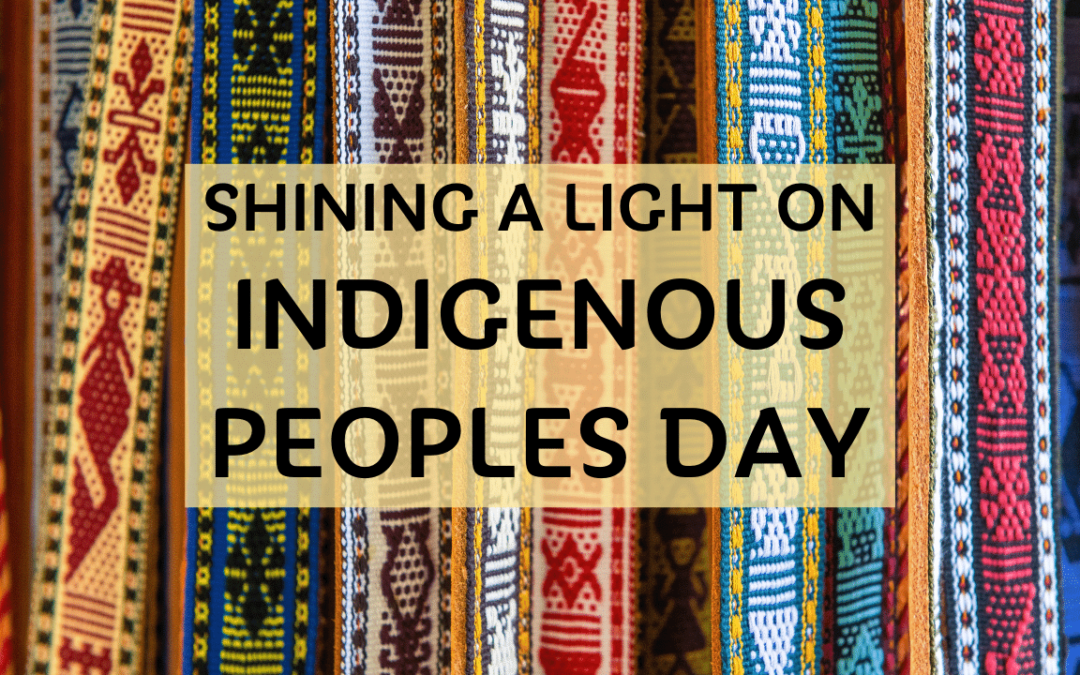Indigenous Peoples Day recognizes and celebrates the cultures and contributions of Indigenous peoples and communities in America. Indigenous Peoples Day occurs on the second Monday of October and is used to honor the past, present, and future of Native peoples in the U.S.
While the United States has been built on the promises of equality and opportunity for all, this has not always been the case for Indigenous peoples of America. Indigenous Peoples Day recognizes the impact and legacy of colonialism on Native communities. Federal policies dating back to the beginning of the country have been used to assimilate and eliminate Native traditions and cultural practices.
If you would like to learn more about the history of Native peoples, please visit the following resources:
- Timeline of History through the Native Lens
- Boarding Schools Survivors and Descendants
- Missing and Murdered Indigenous Women
On October 11, 2021, President Joe Biden became the first president to formally recognize Indigenous Peoples Day as a national holiday. Many states have opted to celebrate Indigenous Peoples Day instead of Columbus Day, calling the holiday a celebration of the genocide and displacement of Native peoples.
There are many ways to celebrate Indigenous Peoples Day today and every day.
Recognize the original inhabitants of the land you are currently living on and advocate for the land back to the original inhabitants.
When hosting any kind of event utilizing a land acknowledgment and honor will allow you to always pay respect to the original inhabitants. Here is a sample one to utilize from Race for Equity LLC.
Every community owes its existence and vitality to generations from around the world who contributed their hopes, dreams, and energy to making the history that led to this moment.
Some were brought here against their will.
Some were drawn to leave their distant homes in hope of a better life.
Some have lived on this land for more generations than can be counted.
We are standing on the ancestral lands of the First Nations people including the [utilize this link to find the tribes in your area]
We pay respects to their elders past and present.
We honor and pay respect to our ancestors who helped to build our city, county, state and nation.
Please take a moment to consider the many legacies of violence, displacement, migration, and settlement that bring us together here today.
Amplify Indigenous voices and perspectives instead of speaking for them.
Compensate Indigenous peoples for their time, emotional labor, and education.
Educate yourself on the Indigenous history of your town, state, and country.
Support Indigenous artists, musicians, authors, etc.
Below are even more ways to support indigenous peoples and educate yourself.
Land Back
Missing and Murdered Indigenous Women
Residential/Boarding School Survivors:
Books to read by Indigenous authors:
Fiction:
- There, There by Tommy Orange
- The Removed by Brandon Hobson
- The Grass Dancer by Susan Power
- Code Talker by Joseph Bruchac
- Winter in the Blood by James Welch
- Almanac of the Dead by Leslie Marmom Silko
Nonfiction:
- Bad Indians by Deborah Miranda
- Pipestone: My Life in an Indian Boarding School by Adam Fortunate Eagle
- An Indigenous Peoples’ History of the United States by Roxanne Dunbar-Ortiz
- Indian Horse by Richard Wagamese
- Carry by Toni Jensen
Podcast to listen to by Indigenous Folks
- All My Relations
- Media Indigena: Indigenous Current Affairs
- Investigates
- The Indigenous Approach
- The Storyteller
Indigenous Artists and Businesses to Support: (all can be found on Instagram)
- @huicholamade
- @reclaiming_roots
- @the.beads.knees
- @eigth_generation
- @potter.in.the.pines
- @stranger.and.co
- @ntvsclothing
- @oxdxclothing
- @bisonstar
- @mxsemee
- @jyotiart
- @thjnavajojewelry
- @turquoisehogan

